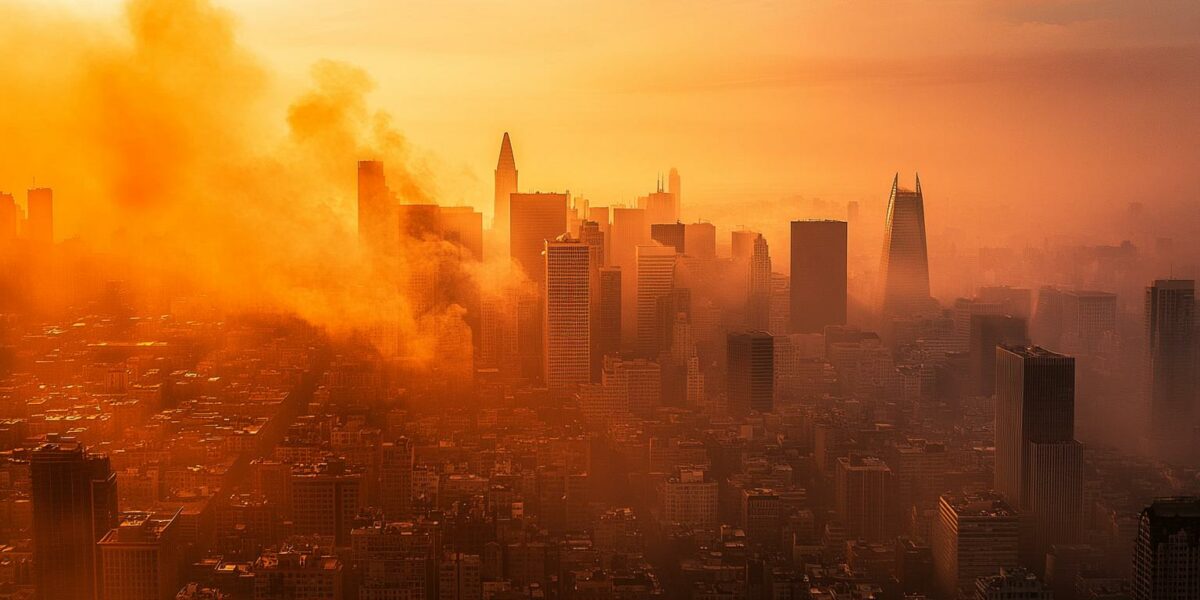The Unyielding Impact of Climate Change
The relentless march of climate change is reshaping our world, bringing with it a surge in diseases, famine, and displacement. As fellow children of God, we feel a profound duty to aid those who are suffering due to these changes.
Wildfires, such as those recently seen in Canada, have sent smoke and haze across vast regions, leading to air quality alerts. Meanwhile, the Atlantic’s record-warm ocean temperatures signal a potentially devastating hurricane season.
Our faith drives us to respond to these challenges, as we witness the planet warming by an estimated 6 degrees Fahrenheit and sea levels rising by 2.5 feet by 2100. This shift threatens homes and livelihoods, potentially leading to the largest wealth loss since the Great Depression.
Despite our efforts to advocate for greenhouse gas reduction policies, emissions continue to rise. The target to limit global temperature increase to 2.7 degrees Fahrenheit is slipping away, creating a sense of impending defeat among many.
Faith and Morality in the Face of Climate Change
Our faith compels us to act as stewards of the earth, driven by a moral responsibility to protect those affected by climate change. The potential increase in extreme heat, vector-borne diseases, and resource scarcity heightens the urgency for action.
Scientists warn of a future where millions are displaced from uninhabitable regions. The potential for widespread displacement grows with each passing year, emphasizing the need for immediate and sustained action.
Ignoring the nearly 8 billion people impacted by climate change is unacceptable. The Lancet has identified it as the greatest global health threat of the 21st century, underscoring our moral imperative to respond.
To adapt effectively, we must:
- Develop robust policies to reduce carbon emissions.
- Prepare communities for the inevitable changes.
- Address the immediate needs of those already suffering.
Preparing for an Uncertain Future
Our current efforts are neither sufficient in mitigating nor adapting to climate change. This inadequacy puts human lives at increased risk, making our mission ever more urgent.
While reducing carbon pollution remains essential, equal emphasis must be placed on preparing for the consequences of our failures. The moral responsibility to defend lives at risk is clear, even as adaptation proves more challenging than stabilizing the environment.
Faith-filled hope drives our continued efforts to curb emissions and act decisively. However, the reality is that harm to many of God’s children is already unavoidable, necessitating focused preparedness.
Successfully navigating this crisis requires shedding petty self-interests and uniting under a common purpose. Our faith insists on this path, as we strive to protect and support those most vulnerable to climate change’s effects.
The Role of Faith in Climate Action
Faith leaders play a pivotal role in galvanizing communities to respond to climate change. Their influence extends beyond religious boundaries, inspiring collective action grounded in moral and ethical principles.
Our commitment to reducing carbon pollution and preparing for its consequences is unwavering. This dual approach is essential to mitigate further damage and adapt to the challenges ahead.
Climate change is not just an environmental issue; it is a profound moral challenge that tests our commitment to justice and compassion. Faith-based initiatives are integral to mobilizing support and driving meaningful change.
As we confront this global crisis, the teachings of our faith provide both solace and a call to action. By embracing our responsibility, we can forge a path toward a more sustainable and equitable future for all.



andrewcelestia7
Thx for sharing these projections, but isn’t it a bit late to reverse the damage? What can we realistically achieve?
NalaWisp
I appreciate the emphasis on moral responsibility. How can we balance immediate needs with long-term goals?
Leah
LOL, so the apocalypse is happening because we didn’t recycle enough? 😅
valerianexus4
This is pretty shocking. But what kind of practical steps can we take right now to make a difference?
Nathan
It’s great to see faith leaders stepping up. Do you have any suggestions for how local communities can get involved?
penelope
Wow, this is seriously alarming. How do faith leaders plan to influence policymakers to take stronger action?
ElijahAurora1
Thank you for shedding light on this critical issue. How can we as individuals support these initiatives?